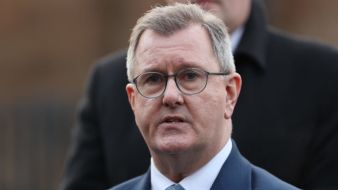Members of the country’s largest public sector trade union, Fórsa, have, like those of Siptu, voted overwhelmingly to accept the terms of the new public sector pay deal.
This makes its adoption at a meeting of the Irish Congress of Trade Unions (Ictu) on Friday all but a formality.
Kevin Callinan, president of Ictu, said that while trade unions will ratify acceptance of the pay deal, they will be closely monitoring the cost of living in the early months of next year.
Speaking to RTÉ’s Morning Ireland, Mr Callinan said trade union members had looked at the pay terms on offer, how they added to the agreement that was already in place and they considered the Government's tax changes in the budget.
"In the round [the members] concluded that it was a fair deal – I think you're seeing in the various returns from affiliated unions very large margins in favour of acceptance and that reflects a combination of things not just the pay terms," he said.
Mr Callinan acknowledged that the agreement fell short of inflation. He said it was something on which the unions were very focused during negotiations because the agreement is now extended into next year, however it still contains a review clause so members were very conscious of that.
"They were probably equally conscious of the fact that we are going to be back in negotiation next year. Since the deal was struck on 30th August there have been a couple of worrying announcements. For instance, the Minister for Finance in his budget speech indicated a change in the department's projection for inflation next year, up from 3 per cent to 7.1 per cent.
"Yesterday the ESRI were saying 6.8 per cent for next year – so that's going to put a lot of pressure on wage bargaining not just in the public sector but right across the economy next year.
"I think people are looking to trade unions to ensure that they get good wage increases and that employers step up where they can, to do their bit to deal with the cost of living crisis."

Mr Callinan explained that normally pay discussions would commence in early summer so that the outcome could be put to members in a ballot and the result could "feed into the budgetary arithmetic."
"I notice Minister McGrath was saying it could be later next year, I think that's something that we'll have to see. We're certainly going to be closely monitoring what happens in the early months next year in relation to cost of living."
Negotiations next year could be difficult, he cautioned, but one of the things that really needed to be factored in was how different the situation now was from 40 years ago. This was in reference to the message that wages could not chase inflation, he said.
“The big difference between then and now is the share of wealth that goes to labour is much less than it was then. I would say generally employers have to do more in terms of the cost of living crisis, of course there are some businesses that will be in difficulty that will need State aid, but in general we would expect capital to bear a lot more of the cost of this.”







